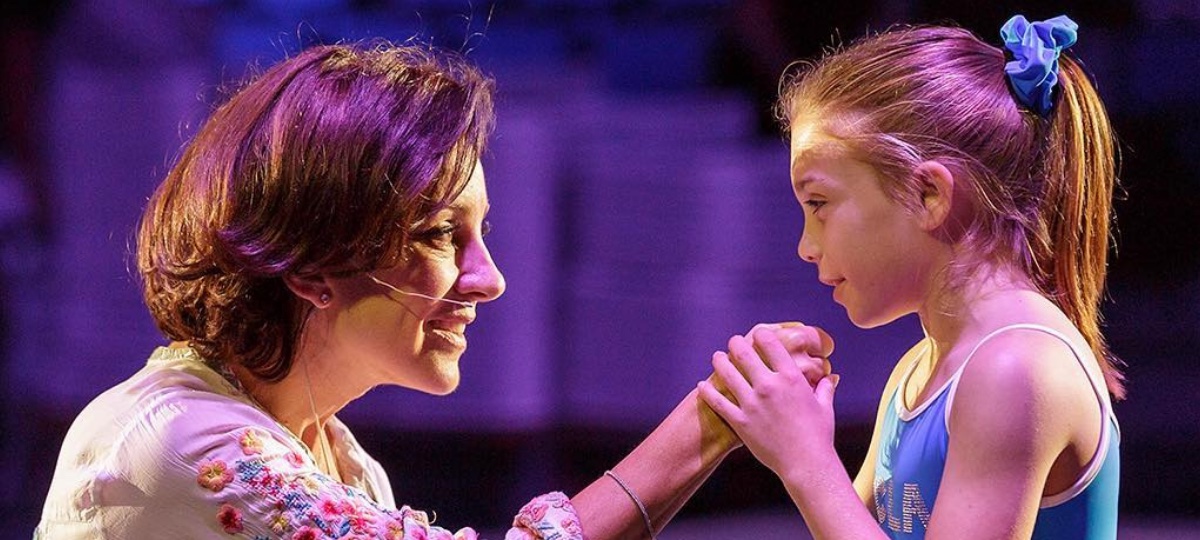Continuing Education
Sports Massage CE Program
Get a solid foundational overview on the science and settings for sports massage.
Valorie Kondos Field talks about her career in dance, how she started coaching gymnasts, and her desire to develop champions in life through sport.

Valorie Kondos Field always wanted to be a gymnast. The problem was she also wanted to do ballet, take piano lessons, ride horses and be a Camp Fire Girl.
“My parents wouldn’t let me add one more thing to my already full week,” Kondos Field remembers. “So, I admired gymnasts from afar, particularly Olga Korbut.”
She couldn’t have known then that her decision to focus on ballet—culminating in a career as a professional ballerina—would eventually pave the way for her dreams to come full circle when her passion for dance later opened the door to coaching gymnastics.
After 37 years coaching some of the most talented gymnasts, including NCAA champions, PAC champions and Olympic athletes, Kondos Field now spends her time encouraging people to redefine success for themselves and to lead by inspiring the whole person.
Massage Therapy Journal had a chance to talk with Kondos Field about her career in dance, how she started coaching gymnasts, how she deals with challenges—like a breast cancer diagnosis—and her desire to develop champions in life through sport.
My most memorable moment on stage came during one of my solos. I was center stage doing a series of high kicks on pointe, and bam ... my foot came out from under me and I landed flat on my tail bone. After the collective gasp from the audience, there was dead silence. I remember thinking, “I can crawl off the stage or I can gingerly stand up and figure out a way to finish.” So, I picked myself up, gave a little shake of my head acknowledging my embarrassment and proceeded to finish the piece. It was the only time during my career that I received a standing ovation.
When I was 16 years old I wanted a summer job, so I called a local gymnastics club and asked them if I could be their dance coach. They didn’t have money for a dance coach, but they did need a pianist. So, they hired me to play the piano for the floor routines. Anyone who knows me will not be surprised that I couldn’t keep my mouth shut, so as I was in the gym playing the music I would also be yelling “Get your head up!” “Point your feet.”
Six years later, I was dancing professionally and heard that UCLA needed a dance coach and choreographer for their gymnastics team. I called the head coach, introduced myself and told him about my background. I’ll never forget when he said, ‟We can’t give you a salary but I can give you a full scholarship.”
I retired from dancing that day, moved to Los Angeles, and the rest is history.
When I went to my oncologist, she told me that had I gotten diagnosed a mere 10 years prior they would have had nothing for me. But now, she was confident that surgery combined with one year of chemotherapy would work. I knew that the way I was going to stop being anxious was through gratitude. I didn’t have to get chemo I got to get chemo. Changing that one word—have to get—has since changed every aspect of my life since then.
It’s important to realize that life isn’t just about the good times. Life is everything: the good, the bad, the joy, the sadness … everything. Once we realize this, we can figure out how to grow through tough times versus just going through them.
When you feel great in a competition and everything is going well it’s really fun but you don’t learn much. The growth comes from struggle. The growth comes from adversity hitting and you figuring out how not to just get through the struggle but how to be a better version of yourself as you go through it and eventually come out on the other side.
Oh my gosh: Yes, yes and yes! Many years ago, when we started bringing in a massage therapist for our team, my coaches and I noticed how much more quickly the athletes recovered. Not just physically, but mentally and emotionally, as well. Our massage therapist is as important to our athletes’ and coaches’ overall well-being as every other professional they see in our program.